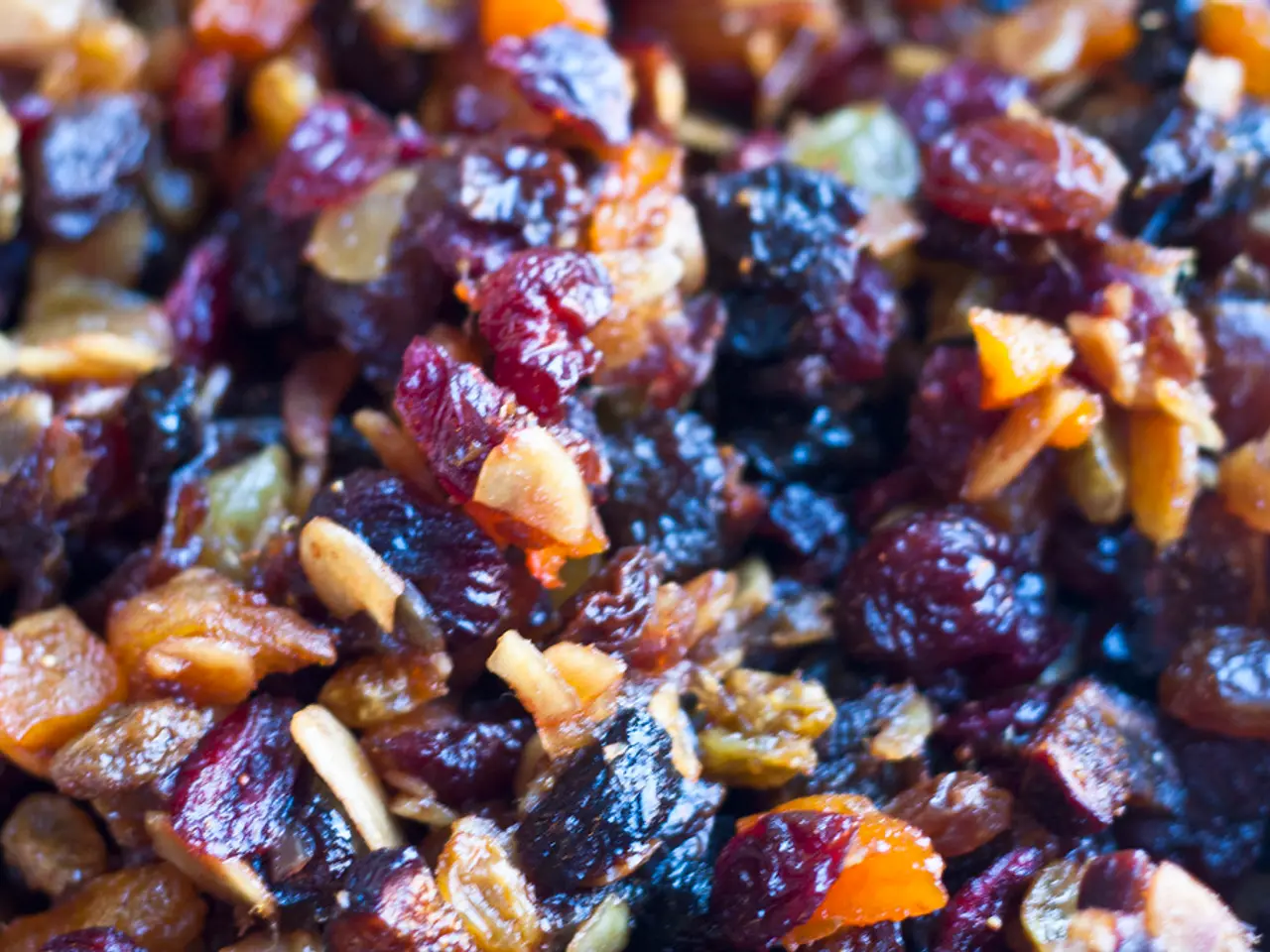Before undergoing a cholesterol test, is it safe to consume food containing cholesterol?
In the realm of health screenings, a cholesterol (lipid panel) test plays a crucial role in assessing heart disease risk. To ensure accurate results, it's essential to follow specific guidelines before the test.
First and foremost, fasting is recommended for 9 to 12 hours prior to the test. During this period, you should avoid all food and caloric drinks, but water is permitted. This fasting period helps maintain accurate measurements of blood lipids, particularly LDL cholesterol and triglycerides, as food intake can temporarily alter these levels and affect the test results.
Avoiding food during this time can help prevent misleading readings. For instance, consuming a high-fat meal before the test can lead to elevated triglycerides and LDL cholesterol, which could impact heart disease risk assessment. Similarly, caffeine and other substances like juice should be avoided, as they can interfere with glucose and lipid measurements.
It's important to note that if you accidentally eat before a fasting lipid panel, inform your healthcare provider. The results may require retesting or alternative interpretation.
In summary, here are some key points to remember: - Fast for 9 to 12 hours before a cholesterol test, drinking only water. - Avoid eating or drinking anything else, including coffee or juice. - Food can elevate LDL and triglycerides and slightly lower HDL, affecting test accuracy. - Follow your doctor's instructions precisely to ensure reliable test results.
The ideal levels of total cholesterol, HDL cholesterol, LDL cholesterol, and triglycerides are around 150 mg/dL, 40 mg/dL (males) or 50 mg/dL (females), 100 mg/dL, and under 150 mg/dL, respectively.
For more specific guidelines, discuss with your doctor which type of test you will be having and whether or not you need to fast beforehand. They can also advise on other foods to avoid and ways for you to manage your cholesterol effectively.
Remember, a cholesterol test is a blood test that looks at the levels of cholesterol in your blood. High LDL cholesterol contributes to the buildup of fats within the arteries and increases the risk of heart attack, stroke, and peripheral artery disease. On the other hand, HDL cholesterol helps carry LDL back to the liver for breakdown and removal from the body, reducing the risk of stroke and heart attack.
By following these guidelines, you can help ensure that your cholesterol test provides accurate and reliable results, helping you and your healthcare provider make informed decisions about your heart health.
References: [1] Mayo Clinic. (2021). Cholesterol test. Retrieved from https://www.mayoclinic.org/tests-procedures/cholesterol-test/about/pac-20385076 [2] National Heart, Lung, and Blood Institute. (2021). Your Guide to Lowering Your Cholesterol with Therapy & Lifestyle Changes. Retrieved from https://www.nhlbi.nih.gov/health-topics/your-guide-to-lowering-your-cholesterol-with-therapy-and-lifestyle-changes [3] NHS. (2021). Cholesterol check. Retrieved from https://www.nhs.uk/check-your-health/heart-and-lungs/cholesterol/ [4] American Heart Association. (2021). Cholesterol. Retrieved from https://www.heart.org/en/health-topics/cholesterol [5] Cleveland Clinic. (2021). Cholesterol test. Retrieved from https://my.clevelandclinic.org/health/tests/16858-cholesterol-test
- Ensuring accurate results for a cholesterol test necessitates fasting for 9 to 12 hours, avoiding food, caloric drinks, but permitting water during this period.
- Consumption of a high-fat meal before the test may lead to elevated triglycerides and LDL cholesterol, affecting heart disease risk assessment.
- Caffeine and substances like juice should also be avoided, as they can interfere with glucose and lipid measurements.
- If you unintentionally consume food before a fasting lipid panel, inform your healthcare provider as this may necessitate retesting or an alternative interpretation.
- Ideal levels for total cholesterol, HDL cholesterol, LDL cholesterol, and triglycerides are around 150 mg/dL, 40 mg/dL (males) or 50 mg/dL (females), 100 mg/dL, and under 150 mg/dL, respectively.
- For specific guidelines, discuss with your doctor, and they can advise on the type of test, other foods to avoid, and ways to manage your cholesterol effectively.




